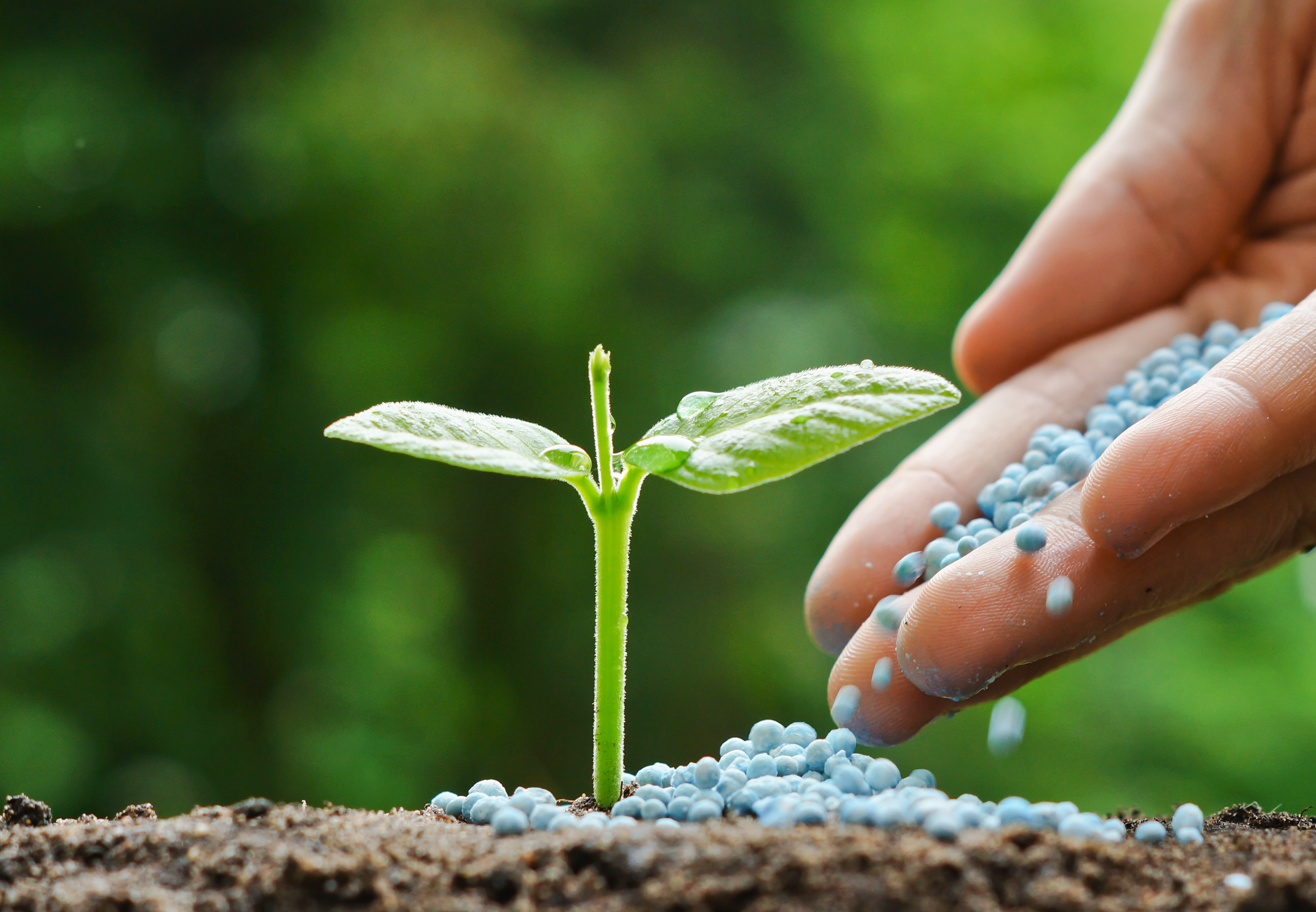Most of the farms and pastoral lands in Ethiopia, where almost 90% of the country’s population lives, are affected by moderate to strong soil acidity. Soil infertility has been growing in scope and intensity and there is a need for an urgent solution to tackle the problem impacting food security and poverty eradication efforts. In recent years, Ethiopia has initiated important soil fertility management programs, one of which is ‘acid soil improvement through the application of natural rock resources, i.e. lime’.
Poor crop growth in acidic soils is mainly due to aluminum toxicity, which slows root growth and decreases the uptake of plant nutrients and micronutrients, like phosphorus, iron and zinc. If the soil is acidic (low pH), it is difficult to achieve the full benefit of fertilizers for better grain growth. Adequately applied lime produced from local natural rock resources increases the soil’s pH and enhances utilization of fertilizers and other nutrients. As a result, less fertilizers are required to obtain the maximum crop yield. In addition, lime provides plants with calcium and magnesium. Ensuring good nutrient status in the soil forms the basis for food security – and for decreasing the environmental burden through the use of less fertilizers.
Better food security requires good cooperation between mineral and agricultural sectors
The Geological Survey of Finland (GTK) is one of the leading global institutions that can provide in-depth expertise for mineral potential mapping and geophysical surveys. GTK is currently implementing a project in Ethiopia with a focus on improving the crop yield through improved soil quality. Central topics are the overall assessment of Ethiopian carbonate rock resources, and the balanced application of lime and fertilizers. The project is aligned with the Ethiopian government’s goal to support the mineral and agricultural sectors’ development so that the productivity of agricultural land and the security of food and nutrition sources can be substantially increased.
As a result of the project, potential carbonate resources of the country will be mapped, and the best combination of lime and fertilizer will be determined for improved grain production and reduced environmental burden. The recommended combination will be based on long-term farm trials in selected areas.
The project has already opened the doors for active communication and joint development cooperation between two major public sectors – i.e. minerals and agriculture – by bringing together geoscientists, soil scientists and related stakeholders. After the initial study of agricultural lime production facilities in the country, the project has also been promoting proper production methods, scientific approaches and new technologies. Following the outcomes of the project, the Ethiopian government is considering upgrading of its technologically outdated lime production facilities with modern crushing equipment.
The Geological Survey of Ethiopia and the Oromia Agricultural Research Institute are the project's immediate beneficiaries, as the activities and outcomes form part of the institutions' statutory functions. The project is also encouraging involvement of women and the younger generation, and adding awareness of geosciences as a key issue for sustainability within agricultural food production.
The biggest winners will ultimately be the Ethiopian farmers, who will be able to increase their crop production as a result of the project findings. Not only will their production increase, but also the costs of needed raw materials will be drastically reduced by replacing the unnecessary high amounts of expensive fertilizers with a low-cost mineral component – lime.
